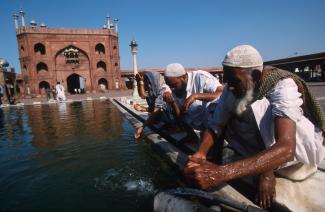Democracy and human rights
The Sachar Committee

The report provided evidence that, the greater the share of Muslims is in a locality, the poorer its educational infrastructure is. It also showed that efforts by India’s central bank to improve marginalised minorities’ access to financial services had largely bypassed Muslims. Members of the Islamic faith were found to be under-represented in government bureaucracies, especially at the higher levels, but over-represented in prisons.
The report was the first time that a government agency acknowledged Muslims’ plight in India. While India runs a census every ten years, the statistics are not disaggregated by religion, so they do not indicate how a specific community of faith is fairing.
The Sachar Committee made proposals on how to improve matters, but its advice was not followed. In a rather bizarre twist, the Sachar Committee’s findings were turned against Muslims. The new narrative became that it was no wonder that such a disadvantaged community would sympathise with terrorism. In this context, doing something to improve the lot Muslims would equally mean appeasing extremists and condoning violence. In 2011, Salman Khursheed, then the minister of minority affairs, told Muslims that the “Sachar Committee report is not Qur’an”, implying that its content was not binding.
Kursheed is Muslim himself and belongs to the Congress Party. He is the kind of token leader who supposedly represents his community in public life, but achieves very little of substance. These politicians are common in many parties. They focus on issues of symbolic relevance for identity politics that do not cost state agencies much. (gj)










